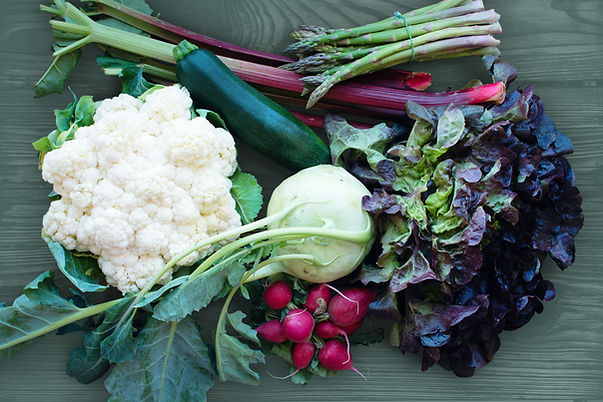
Why real food?
Real foods are as close to their natural state as possible. They are not processed or injected with added ingredients. As a result, real foods nourish the whole person, physically, mentally, and emotionally. Their varied colors, textures, smells and tastes engage and delight our senses. Their abundant nutrients allow our bodies to renew, repair and revitalize.
On a subtler level, whole foods supply us with unique energetic qualities. Root vegetables give us grounding and staying power, a tenaciousness to take on life’s challenges. Leafy green vegetables impart lightness and vibrancy. Whole grains (complex carbohydrates) provide us with a slow-burning, steady and balanced energy. Animal or vegetable protein can promote strength, muscle tone, and stamina.
We feel better and look better eating a regular diet of nutritious whole foods. But the greater benefits are the deeper connections we develop with mother earth, the maturation of our intuition, the healing of our body, and the revitalization of our whole being.


The problem with processed foods.
Highly processed foods are incomplete, with much of their vitality and nutrients lost in the refining process. The fragmented energy of these foods leaves us ungrounded, vulnerable to injury and chronic disease. Our innate healing process becomes crippled. Most processed foods contain unnatural contaminants, including artificial sweeteners and flavors, MSG, sulfites, preservatives, and dyes. These toxins strain our liver and kidneys, making them weak and susceptible to degeneration. Highly sweetened foods, fast foods, white bread, sodas, and margarine are unbalanced, nutrient-deprived foods which drain our physical and mental energy.
Michael Pollan, author of
In Defense of Food: an Eater’s Manifesto
“Don’t eat anything that your great-great grandmother would not recognize as food.”


